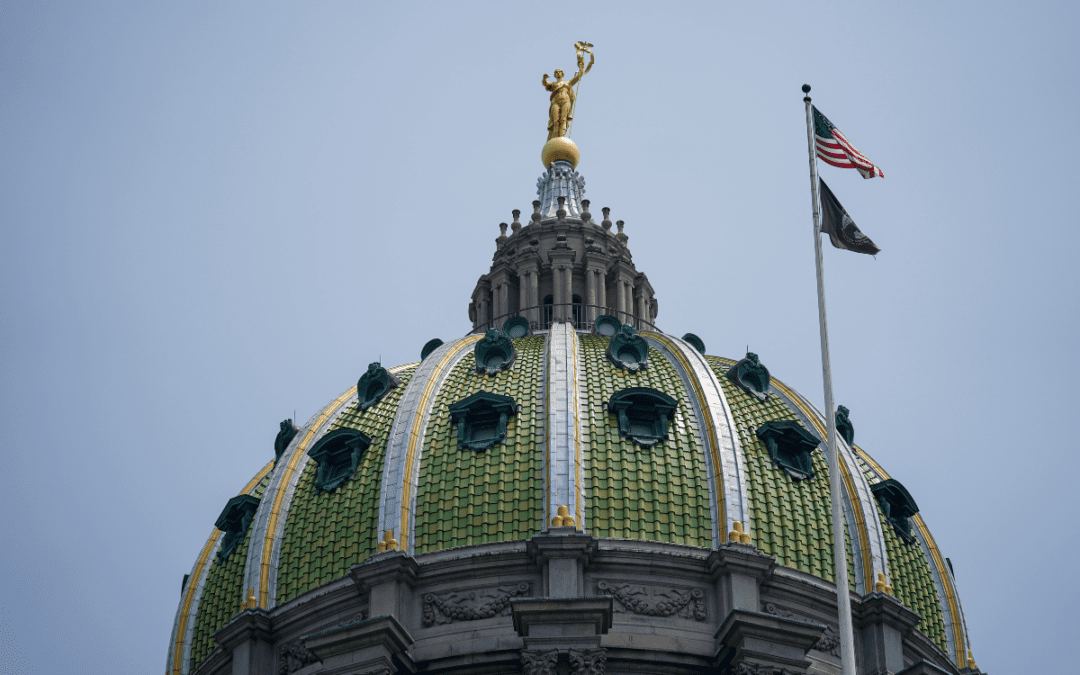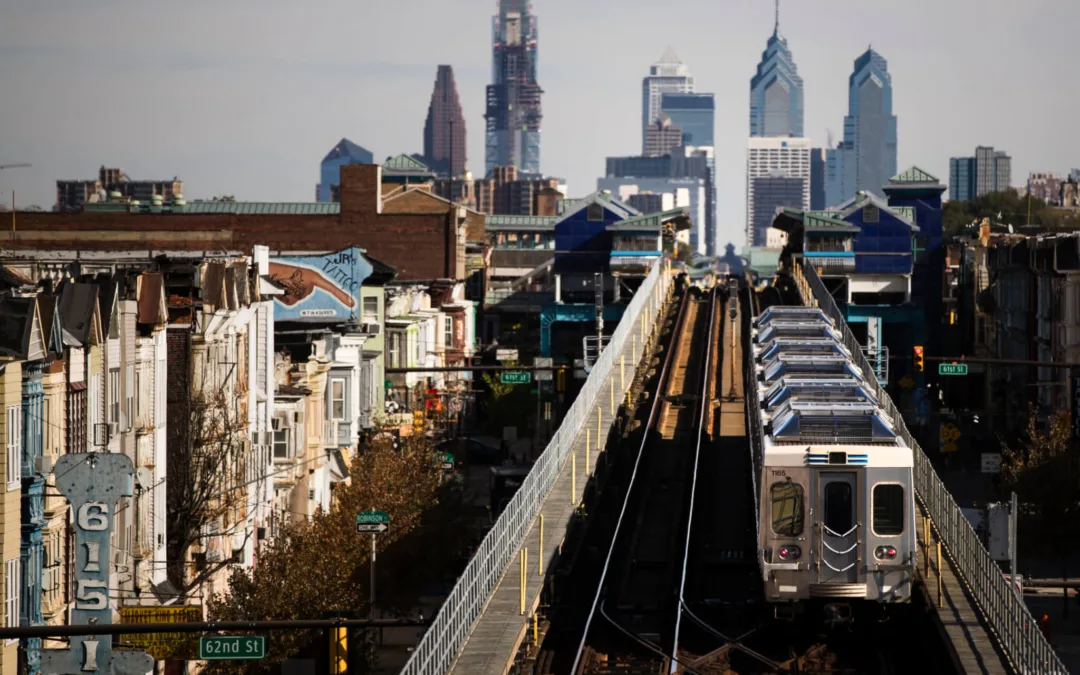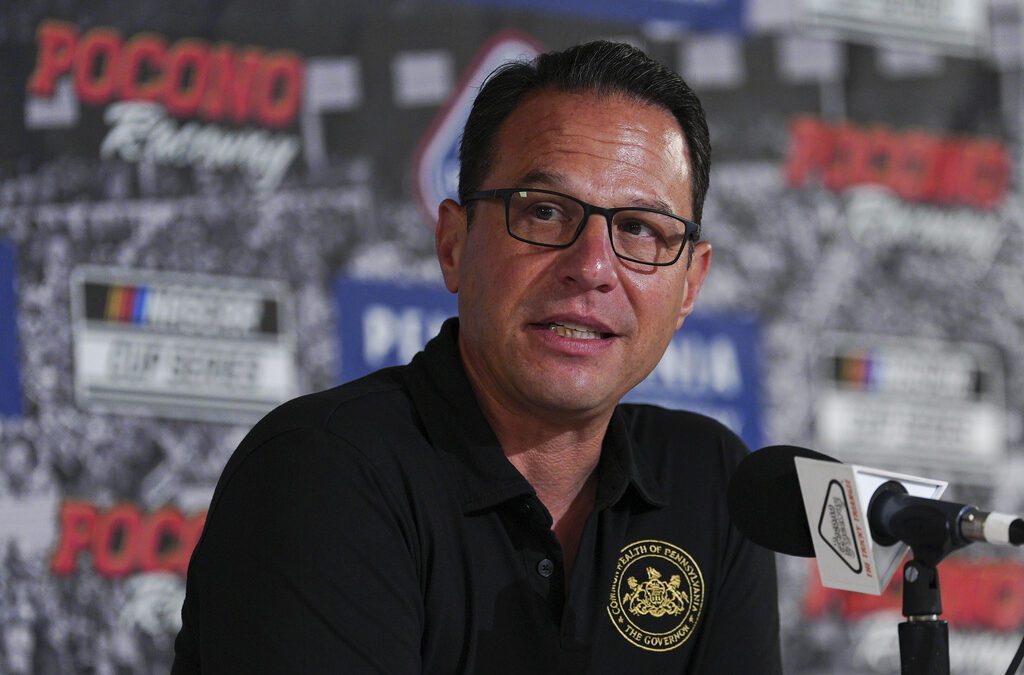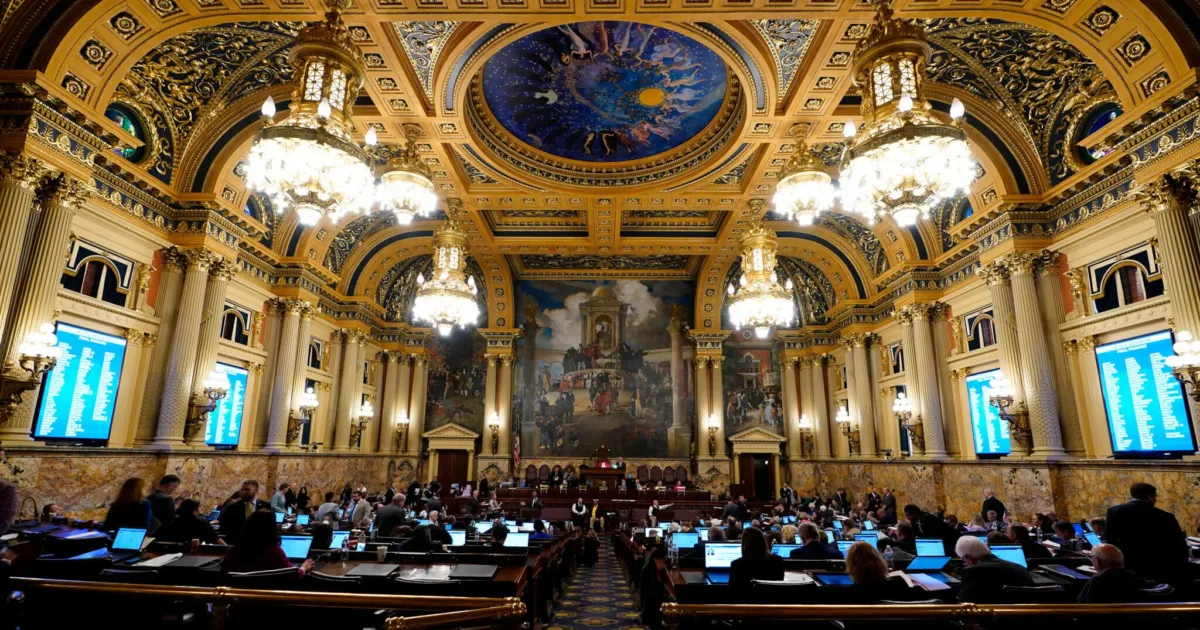
Pennsylvania Gov. Josh Shapiro arrives to deliver his budget address for the 2025-26 fiscal year to a joint session of the state House and Senate at the Capitol is seen, Tuesday, Feb. 4, 2025, in Harrisburg, Pa. (AP Photo/Matt Rourke)
Shapiro said he’s open to Republican’s proposal to use public transportation trust fund money to shore up transit authorities, if it’s paired with long-term funding.
Eight weeks after the constitutionally mandated deadline for the legislature to pass the next state budget, Gov. Josh Shapiro says the gap between Democrats and Republicans is narrowing.
But it isn’t closed yet.
While Shapiro told reporters at a press conference Monday that he had a “particularly busy” weekend talking with leaders of the House Democratic and Senate Republican majorities, more work remains.
“There are real differences between the parties, and real tugs on the parties in different directions,” Shapiro said. “But we have proven an ability to do that because we have found common ground.”
It’s a message that’s been repeated over the last few months, and Shapiro largely declined to provide any new details on the issues still dividing Democrats, who have a majority in the state House, and Republicans, who control the Senate.
However, Shapiro accused some Republicans of “play[ing] politics” and stalling the budget.
“I think it’s unfortunate that some in this building seemingly want to play politics now just to slow this process now,” he said. “When they seek to slow this process down to hurt me politically, all it does is hurt the good people of Pennsylvania.”
The statement comes just over a week after Republican state Treasurer Stacy Garrity announced a bid to challenge Shapiro in the 2026 gubernatorial race.
Garrity is widely seen among Republican insiders as the strongest candidate to challenge Shapiro when he seeks reelection. In 2024, she won reelection by the widest vote margin of any candidate in a row office race.
Republican leaders in the statehouse, including Senate Majority Leader Joe Pittman (R-Indiana), Senate president Pro Tempore Kim Ward (R-Westmoreland) and House Minority Leader Jesse Topper (R-Beford), endorsed Garrity on Monday, even as their colleague, Sen. Doug Mastriano (R-Franklin), teases a potential primary bid of his own. Mastriano won the Republican gubernatorial primary in 2022, but lost to Shapiro by almost 15% of the vote in the general election.
A spokesperson for Pittman did not respond to specific questions from the Capital-Star, including about Shapiro’s accusation. She referred instead to a social media post.
“Negotiations continue as we work to reach consensus on a final budget product that puts our commonwealth on a stable spending path for future years,” Pittman said.
Points of contention
As it stands, a particular point of contention between Democrats and Republicans has been how to fund the state’s mass transit authorities, which operate trains, buses and shared ride services in all 67 Pennsylvania counties.
On Sunday, the Southeastern Pennsylvania Transportation Authority (SEPTA), which operates in the Philadelphia area, enacted a 20% service cut it called a direct result of legislative inaction.
Other transportation authorities, operating in urban, suburban and rural areas, say they may have to follow suit if additional funding isn’t made available to them.
Earlier this month, the divide between House Democrats and Senate Republicans over how to fund transit authorities spilled out into the open, with both chambers passing bills, but no agreement ultimately reached. Republicans in the Senate passed a stop-gap solution, which would see the state dip into the public transportation trust fund, which typically funds long-term capital and maintenance projects, to shore up transit authorities through 2026, and divert some of those funds for road and bridge repair.
Democrats in the House passed a standalone transit funding bill that would direct an additional 1.75% of the state’s sales tax revenue to transit authorities, a solution they say could support transit authorities for the next decade. It also included Republican-backed measures designed to ensure transit authorities are addressing issues like fare evasion and working to bring in additional private revenue. But the Senate rejected the plan, and the House rejected the Senate’s.
Shapiro, however, said he was open to diverting funds from the public transportation trust fund, as long as it’s paired with other recurring funding.
Asked whether Senate Republicans had any flexibility on their proposal, a spokesperson for Pittman referred again to his statement on the social media site, X.
“The Senate advanced a mass transit and transportation infrastructure bill earlier this month, which would have prevented any of SEPTA’s cuts,” Pittman wrote. “The use of excess money in the Public Transportation Trust Fund is a responsible approach to address transportation needs across PA right now, while respecting taxpayers and ensuring safety and accountability in transit operations.”
Another source of division between Senate Republicans and House Democrats is over how much new funding K-12 public schools should receive.
Last year, lawmakers passed a budget that included roughly $1 billion in new funding for Pennsylvania’s public schools, following a Commonwealth Court ruling that found the funding gap between the state’s richest and poorest schools was unconstitutionally inequitable.
A bipartisan commission convened to recommend a solution proposed increasing education spending by $5.4 billion over seven years. The additional money is to be doled out through what’s called an adequacy formula taking into account factors like poverty levels and the number of students learning English as a second language in a given school district.
Last year, lawmakers agreed to include the adequacy formula in their budget, sending out roughly $500 million through it. While Democrats hope to double that amount this year, Senate Republicans want to keep that spending flat. Some have even called for modifying the formula altogether.
Earlier this month, Senate Appropriations Chair Scott Martin (R-Lancaster) told reporters “We need a much fairer system. It’s going to be changing because our demographics change.”
He cited declining kindergarten enrollment, and broader population changes around the commonwealth
PA Schools Work, a coalition of non-profits that advocate for public education, told the Capital-Star earlier this month, that failing to increase education funding would be a failure to meet schools’ needs.
Dan Urevick-Ackelsberg, a senior attorney at the Public Interest Law Center, a coalition member and a leader of the lawsuit that led to the Commonwealth Court ruling, said in a statement following Martin’s comments, “Senate Republicans’ budget proposal isn’t just inadequate – it amounts to a massive education cut that betrays Pennsylvania students and leaves them holding the bag.”
School districts across the commonwealth have said that, if no budget is passed in the next few months, some will have to cut services or forego purchases of classroom supplies and textbooks.
Counties across Pennsylvania are also scrambling to ensure that safety net services remain active without state funds that are held up until a budget is signed by Shapiro. Some contractors who are hired to run county-backed services like child welfare enforcement and senior citizen programs, have already had to dip into reserves or cut staff pay.
Zooming out further, Republicans and Democrats have been divided over a more fundamental issue: how much the state should plan to spend in the coming year. Democrats have advocated for dipping into the state’s reserve funding, pointing to a $3 billion surplus and the $7 billion rainy day fund.
Republicans, however, are aiming to close the state’s structural deficit, a result of the state planning to spend more out of its general fund than it takes in over the last several years.
In February, Shapiro unveiled a plan to spend $51.5 billion in the 2025-2026 fiscal year, roughly $4.5 billion more than his office projected the state would bring in.
In July, the Democratic-led House passed a budget bill that would have cut Shapiro’s proposal by $1 billion, though the measure has stalled in the Republican-controlled Senate.
To offset the deficit, Shapiro has proposed legalizing and taxing recreational marijuana, and placing a tax on so-called skill games, slot machine-like devices that have popped up in bars and corner stores across Pennsylvania.
While Republican leaders have previously rejected legalizing recreational cannabis this year, and disagreements remain in the caucus over how to regulate skill games, Shapiro said Monday, “I’m not going to concede on any of those fronts … I think we’ll be able to pass a fiscally responsible budget that cuts taxes and makes significant investments.”

Budget disagreements burst into the open at Pa. Capitol
The Senate passed a Republican-backed budget. But Gov. Shapiro said it’s ‘not a serious, long-term proposal.’ After a flurry of activity at the...

Shapiro says ‘the time to act is now’ on mass transit funding as potential service cuts loom
Autumn Fingerhood is a hospitality worker who lives in northeast Philadelphia and is a member of Unite Here Local 274. As a single mother working...

Pa. House holds a Sunday vote on transit funding as the consequences of a late budget loom
The move to advance a standalone transit funding bill is something of a pressure tactic on the part of House Democrats. The state House convened on...

Safety net programs are likely to be the first affected by a continued Pa. budget impasse
Advocates warn delayed state disbursements will curtail county mental health and substance abuse programs. If the state budget paralysis in...

Schools and counties begin to see payment delays as Pennsylvania’s budget stalemate hits a month
Democratic Gov. Josh Shapiro's administration says billions of dollars in aid to Pennsylvania's schools and human services will be delayed, as he...




